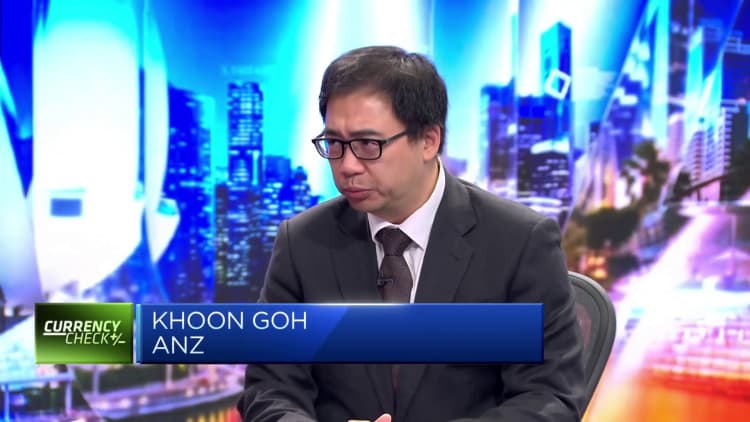
Despite the Bank of Japan’s decision on March 19 to end eight years of negative interest rates, the yen remains in a downward trend.
Nathanael Ginting | Stocks | Getty Images
Japanese Finance Minister Toshiichi Suzuki said on Monday that there was some speculation in the currency market that did not reflect economic fundamentals and reiterated his warning about excessive depreciation of the yen.
“We will monitor currency market developments with a strong sense of urgency and respond appropriately to excessive volatility without ruling out any options,” Suzuki told parliament.
Suzuki said a variety of factors are driving currency movements, such as the Bank of Japan’s decision to end negative interest rates, Japan’s current account balance, price movements, geopolitical risks and sentiment and speculative trading among market participants.
“Regarding the recent decline of the yen, we believe that considering domestic and foreign economic and price developments, there is some speculation and does not reflect fundamentals,” he said.

JPY Despite the Bank of Japan’s decision on March 19 to end eight years of negative interest rates, the yen has been on a downward trend against the dollar and hit a 34-year low of 151.975 last week. Earlier on Monday, its price was $151.315.
With the Bank of Japan’s policy rate remaining around zero, expectations that the gap between U.S. and Japanese interest rates will continue to widen give traders an excuse to continue selling the yen, analysts said.
Suzuki declined to comment when asked by a lawmaker whether the yen’s sharp decline after the Bank of Japan exited negative interest rates was within or exceeded his expectations.
“It is very important that exchange rate stability reflects fundamentals. Excessive volatility is not advisable,” Suzuki said.
The yen has rebounded since Japan’s monetary authorities held an emergency meeting over yen weakness WednesdayThe plan began early on Thursday with the strongest warning yet against excessive yen depreciation.
Japan intervened in currency markets in 2022, first in September and then in October, when the yen fell to 152 against the dollar.





